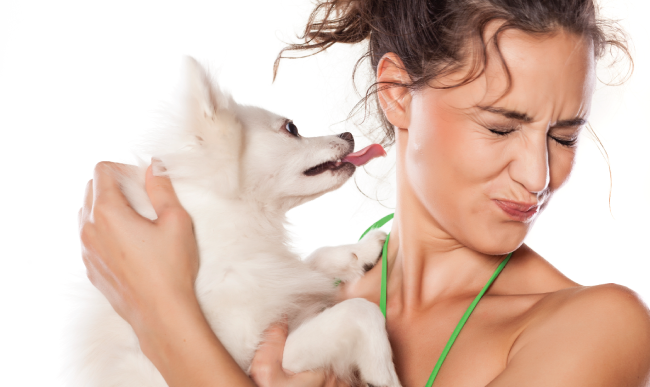Spend a few minutes with any dog and you’ll likely catch a whiff of his breath because dogs aren’t shy. They also aren’t known for fresh-smelling mouths. But bad breath isn’t just an unpleasant thing for you—it can mean something serious for your pup.
Sometimes a simple tooth brushing might suffice, but other times, bad breath is the sign of a more serious problem that requires veterinary care. Learn the common causes of bad breath in dogs so that you can protect your four-legged friend.
Dental or Gum Disease
Bad breath (known medically as halitosis) in dogs can occur when your dog has a dental condition—from gum disease or infection to tooth decay.
Although your vet looks for obvious signs of dental disease during your dog’s annual checkup, it’s a good idea to make an appointment in between visits if you suspect a dental issue.
Kidney Disease
Metabolic diseases like kidney disease or failure can cause bad breath. In fact, a decrease in kidney function can make a dog’s breath smell like ammonia.
The waste products that are normally eliminated by the kidneys build up in the bloodstream and then show up in the breath of affected individuals.
Diabetes
Diabetes, specifically diabetic ketoacidosis, can also make a dog’s breath smell unusual, giving it a sweet, almost fruity smell. Uncontrolled diabetes can also suppress the immune system, allowing bacteria in the mouth to grow unchecked.
Oral Tumors
Your dog’s teeth and gums aren’t the only areas for concern when it comes to possible causes of bad breath. Oral tumors are another potential cause due to the fact that their growth is often too fast for blood vessels to keep up, thus causing dead areas. Bacteria then takes over the dead areas, and that bacteria is often what causes a foul odour, he says.
If you notice any masses or discolourations in your dog’s mouth, they should be checked out by a veterinarian.
Food
While garbage or another non-approved substances can make your pup’s breath smell undesirable, even dog-approved foods and treats don’t always freshen breath.
Dry food and wet food both have pros and cons when it comes to how they affect breath; some types of dry food can be better for teeth and helping keep the mouth clean overall, but wet food has more water which is also good for a dog’s mouth.
If you’re concerned that it’s simply your dog’s food that is causing bad breath, you can work with your veterinarian to find the best option for your dog.
Source:
https://www.petmd.com/

